Dr. Pham Hiep, Thanh Do University, shared that as a person who often organizes training courses for lecturers and researchers on methods of writing scientific papers, he receives many requests from parents. Some parents really want their children to participate in scientific research and follow the path of research, but there are also parents who directly ask for scientific papers.
Whose fault?
For parents who only want their children to be listed in scientific papers, Dr. Hiep refused to support. Mr. Hiep affirmed that students should not be encouraged to publish international papers. In fact, when they are in grade 10, their English level is not enough. Grade 11 is just starting to do it, so they cannot have papers in grade 12. If they have international papers in high school, foreign universities will be suspicious when reviewing their applications and that is a disadvantage, not an advantage.

Scientific research needs to be substantive and honest. (Illustration: Anh Thu)
Mr. Hiep said that the current controversy in scientific research of high school students comes from two reasons. First, the benefits of the awards are so great that many people run after them regardless. Because when they have those benefits, they will have greater academic benefits.
Second, the problem lies with the judges. Therefore, the Ministry of Education and Training needs to equip the judges with the necessary tools for evaluation, such as anti-plagiarism software...
Dr. Pham Hiep analyzed that if students are not honest right from high school, it will be a risk for them. When studying abroad, the price to pay is likely to be expulsion.
Therefore, there needs to be standards for students and lecturers to participate in scientific research in a transparent and clear manner. These standards are not issued by the Ministry of Education and Training or the management agency, but each university needs to develop standards that are suitable to practical requirements.
Currently, from the perspective of anti-plagiarism, the number of universities in Vietnam that have software is very small. If the small things are not up to standard, it will be very difficult to do big things like scientific integrity. If we do not start from the small things, violations of integrity will happen every year and will not exclude anyone.
Regarding the science and technology competition, Mr. Hiep proposed that the Ministry of Education and Training should still organize it at the national level as it is now, but should not include it in the university admission regulations as one of the subjects eligible for direct admission upon winning a prize. Whether or not to directly admit should be decided by the university based on its autonomy. At that time, the Ministry would return the competition to its true value.
An expert who participated as a judge shared that although the judges were required to score based on criteria related to common factors and score the parts that belonged to the students, it seemed that the judges still scored "big" content that the students could not do.
According to this person, during the interview, the examiner will know how students participate in the project. Scientific research must start from general knowledge. If the research basis cannot be shown as the knowledge of a subject that serves as the foundation for the research, then the project is almost certainly for adults.
Chasing after virtual achievements
Dr. Le Van Ut, Assistant to the President of the University Council on Scientific Research and Head of the Research Integrity Assurance Department, Van Lang University, said that from the practice of scientific research management, it can be seen that scandals have happened, are happening, and may happen. That is the violation of integrity in scientific research.
Violations can include fraud, fabrication, and plagiarism in the process of conducting and publishing research results. As long as there is scientific research, violations of research integrity can occur. Of course, if research participants have not been properly trained in scientific research methods, violations of research integrity are more likely to occur.
Having your name on a scientific paper is a great honor for a researcher. At that time, the author of the scientific paper enjoys many material and spiritual benefits. It can be said that the problem of colluding authors and “ghost” authors are two common and difficult-to-manage behaviors in the work of ensuring research integrity, because the giver and the receiver have a consensus in exchange for benefits.
Up to now, there is no regulation prohibiting students from participating in scientific research and becoming authors in scientific articles. Therefore, whether or not lecturers at highereducation institutions “collude” in helping students “borrow” their names in scientific articles needs to be carefully assessed by units that ensure research integrity such as the Research Integrity Council and the Research Ethics Committee. In fact, it is not too difficult to solve this problem if there is determination.
Since there is no regulation prohibiting students from conducting research and becoming authors of scientific papers, it does not mean that every student who participates in joint research with university lecturers immediately thinks of violating research integrity. Once there is suspicion of authoring a scientific paper (anyone, not just a student), it is possible to rely on signs related to violations of research integrity belonging to the groups of fraud, fabrication and plagiarism.
Of these, there are 8 acts of research fraud; 4 acts of research fabrication; and 7 acts of research plagiarism. For an author who has no real contribution to the article or generally violates research integrity, it is not difficult to detect after the review and scrutiny process through the 19 acts as mentioned.
Dr. Le Van Ut believes that preventing or eliminating violations of scientific research integrity is not only for students but should be considered for all researchers. However, researchers who have not been trained in scientific research methods, including research ethics/integrity, are more likely to violate research integrity. It can be said that most students belong to this group.
To limit this situation, it is necessary to consider chasing after virtual achievements and virtual movements in scientific research for high school students. This issue is not only the responsibility of the participating students, but also of the instructors, managers, and management and leadership units from the grassroots to the top.
“Is it normal for a student to be the author of research works equivalent to doctoral theses, while high schools do not have laboratory equipment to support such research? If it is assumed that the student has participated in research and conducted experiments in laboratories of higher education institutions, there needs to be specific evidence,” Mr. Ut wondered.
However, he believes that, in a broader sense, there can still be research topics in which high school students with special abilities can participate in research with the support/guidance of professional researchers. In that case, it is completely normal for students to be named as authors of the research work.
Source: https://vtcnews.vn/goc-khuat-hoc-sinh-nckh-loi-ich-giai-thuong-qua-lon-khien-nhieu-nguoi-bat-chap-ar947105.html








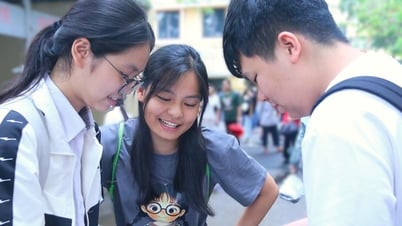

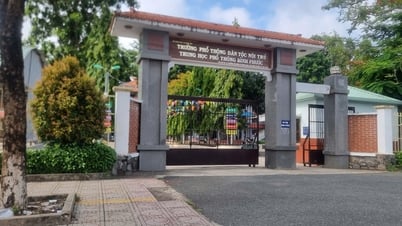

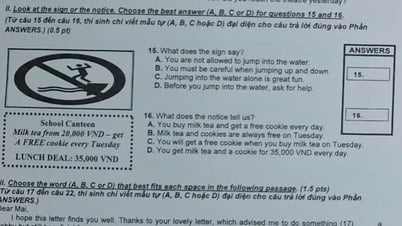
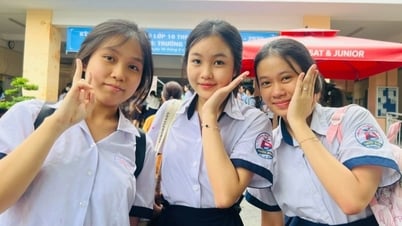

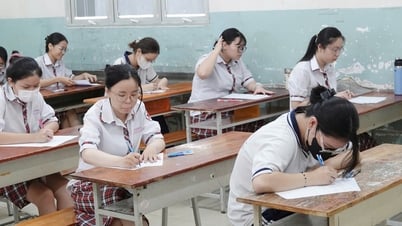
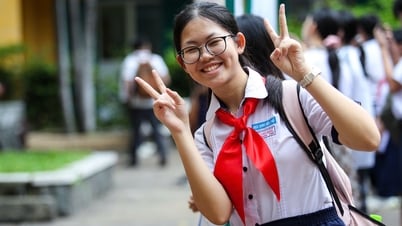




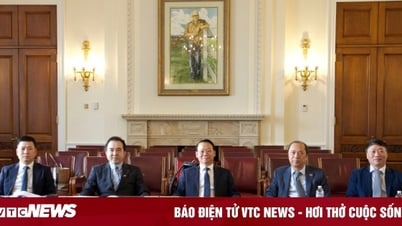
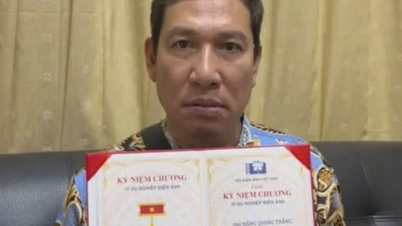

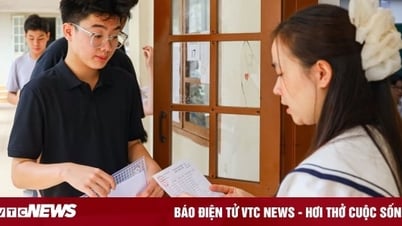
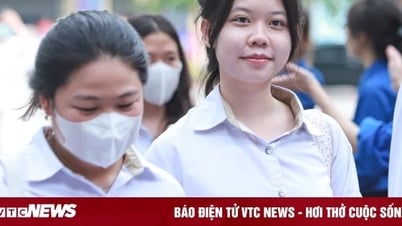

![[Photo] General Secretary To Lam receives Korean Ambassador to Vietnam](https://vphoto.vietnam.vn/thumb/1200x675/vietnam/resource/IMAGE/2025/6/6/a0765b7543784cbcbfe4755b67d43ab4)
![[Photo] President Luong Cuong works with Hung Yen and Thai Binh Provincial Party Committees on implementing Resolution of the 11th Central Conference, 13th tenure](https://vphoto.vietnam.vn/thumb/1200x675/vietnam/resource/IMAGE/2025/6/6/127b735d2761484d81dcee0d7725a25b)




























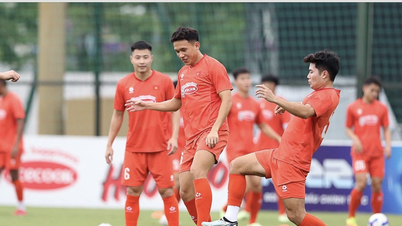
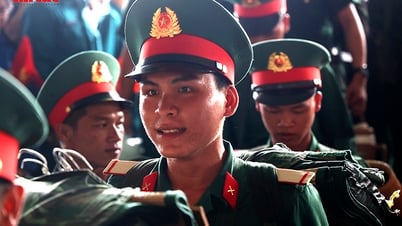
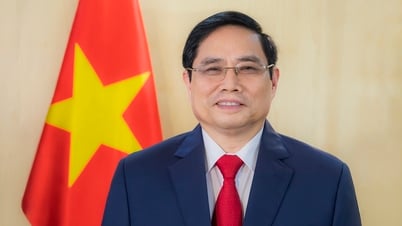

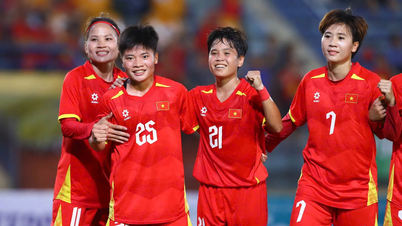
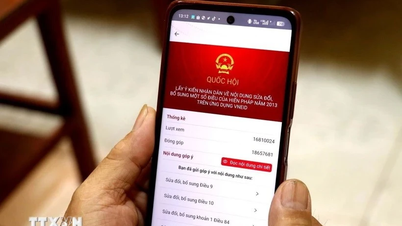

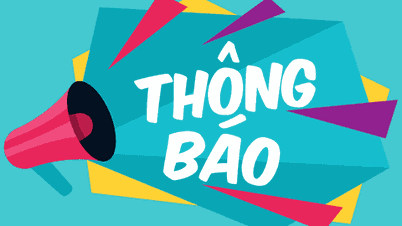

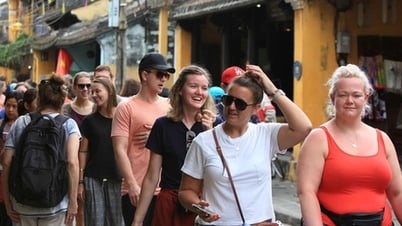


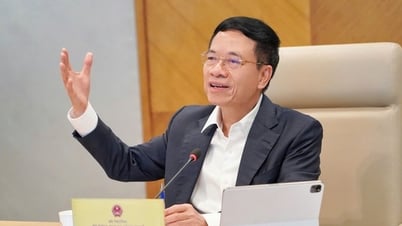

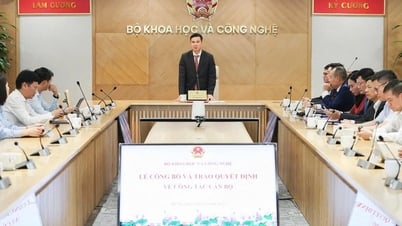
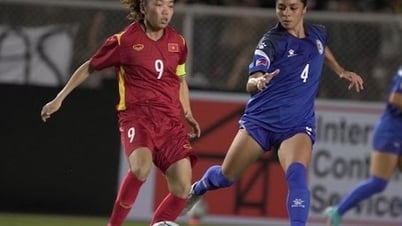
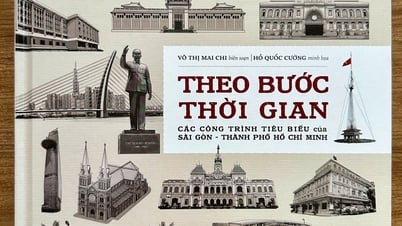

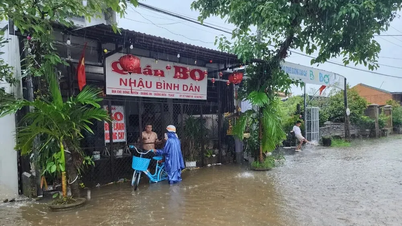

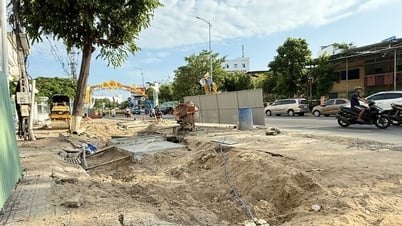
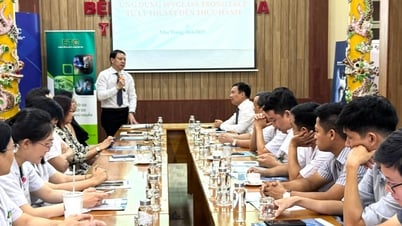
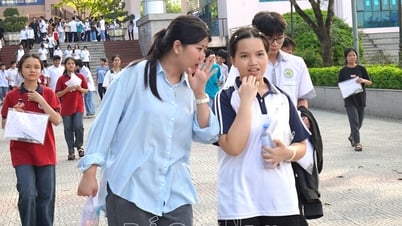

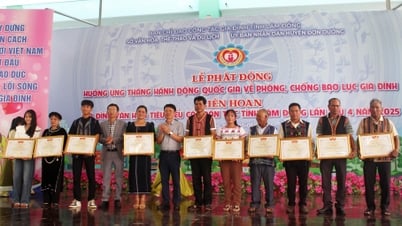





![[OCOP REVIEW] Tu Duyen Syrup - The essence of herbs from the mountains and forests of Nhu Thanh](https://vphoto.vietnam.vn/thumb/402x226/vietnam/resource/IMAGE/2025/6/5/58ca32fce4ec44039e444fbfae7e75ec)








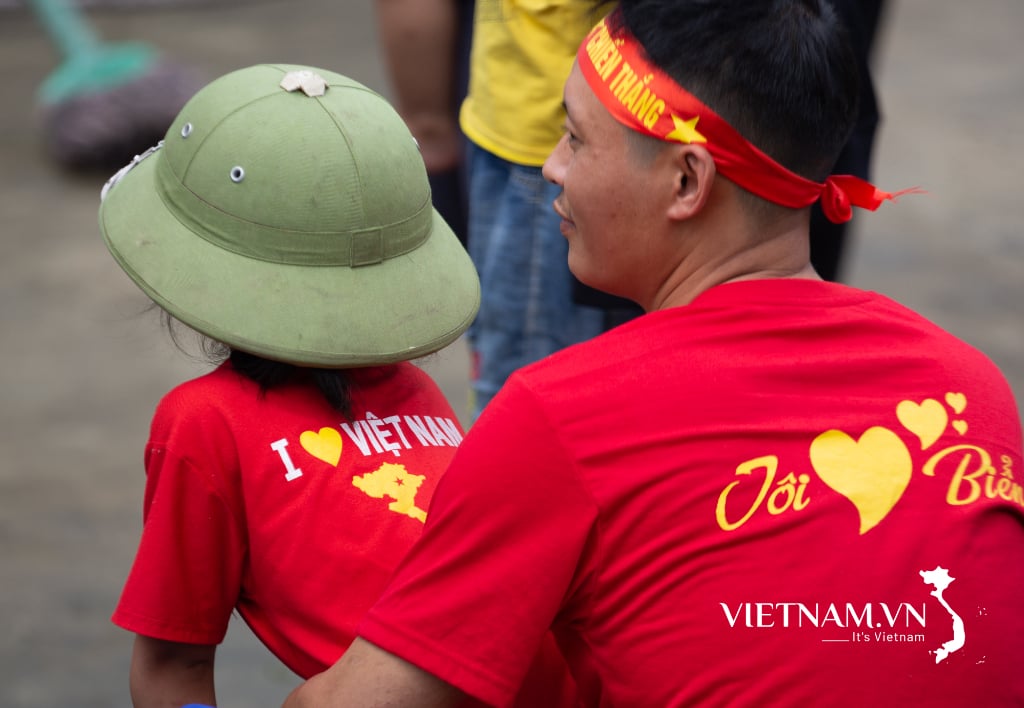
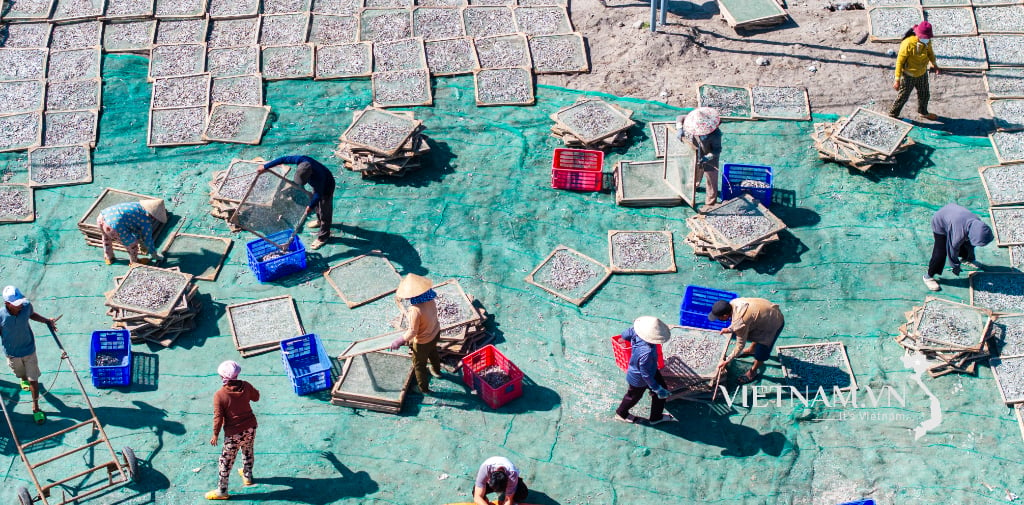
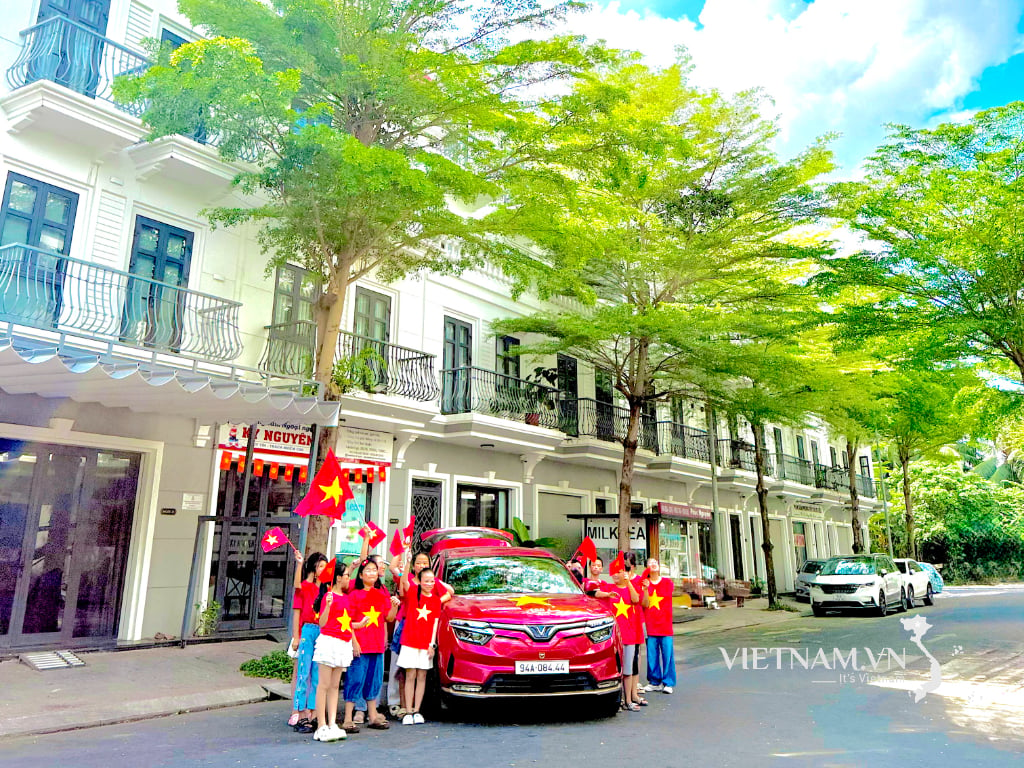
Comment (0)